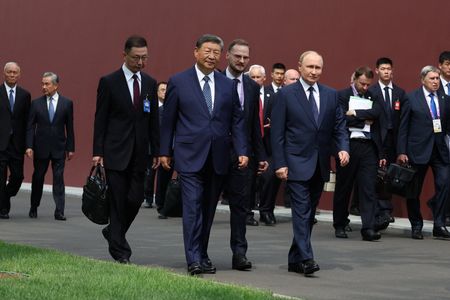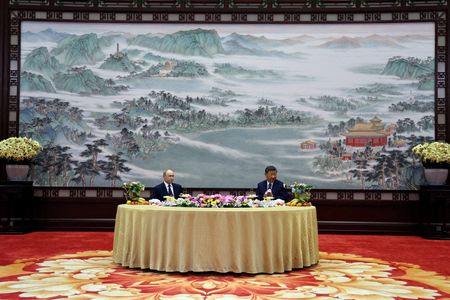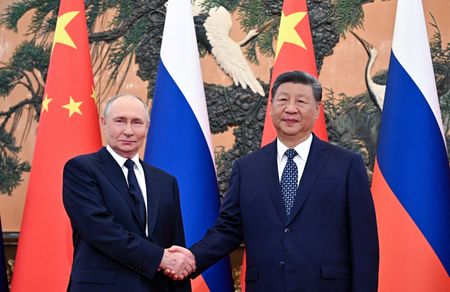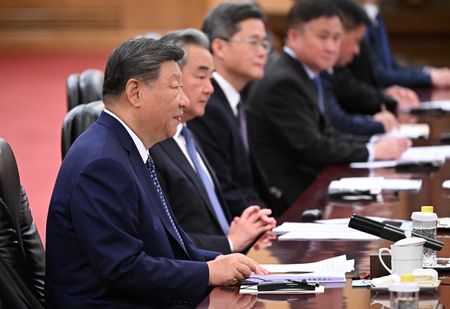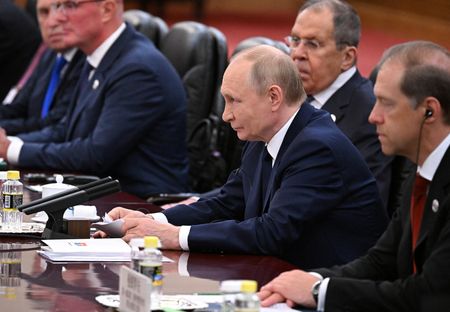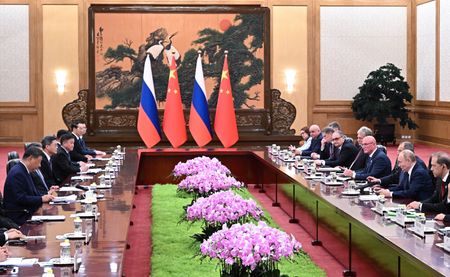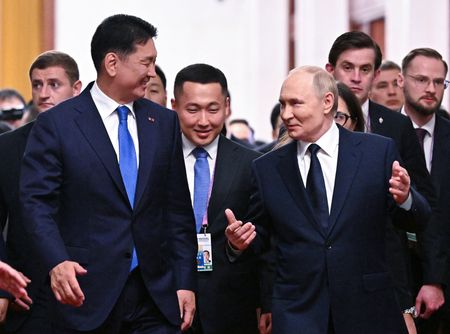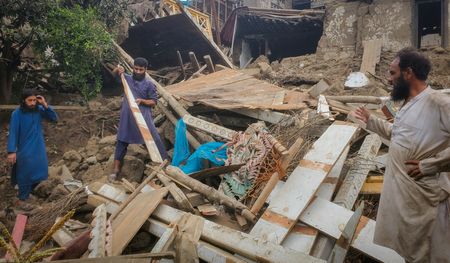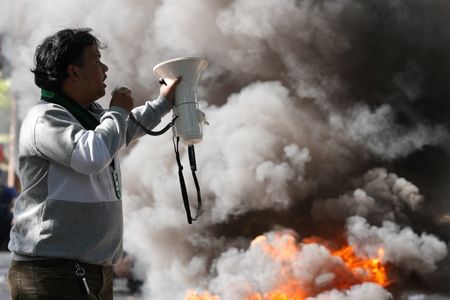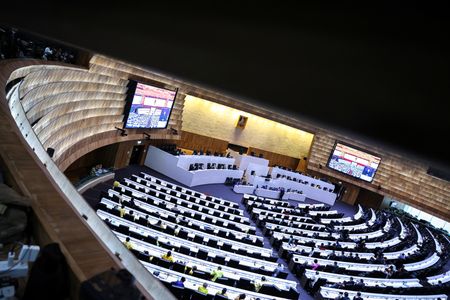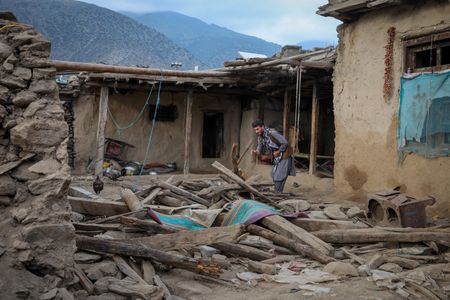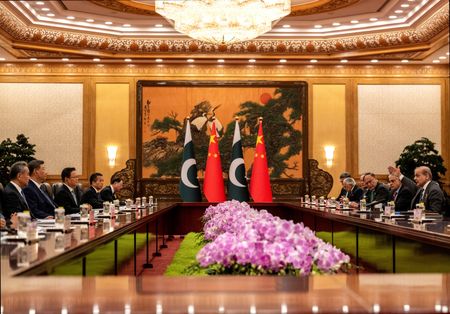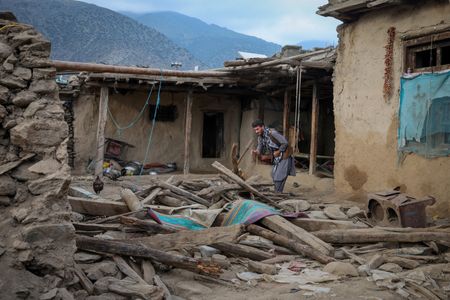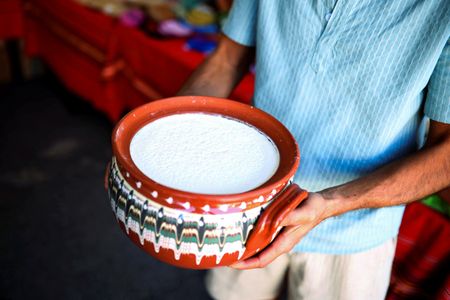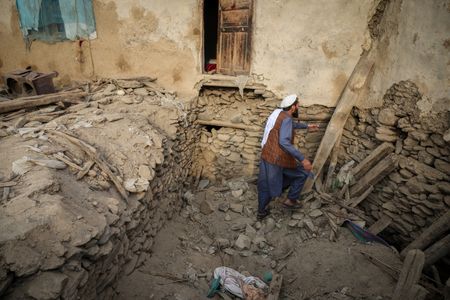By Joe Cash
BEIJING (Reuters) -China’s President Xi Jinping convened his Russian and North Korean counterparts in Beijing for the first time on Tuesday, a show of solidarity with countries shunned by the West over their role in Europe’s worst war in 80 years.
Xi hosted Vladimir Putin for talks at the Great Hall of the People and then at his personal residence, calling him his “old friend”.
A few hours later, Kim Jong Un’s armoured train was spotted by a Reuters witness arriving in the Chinese capital. North Korean state media confirmed Kim’s arrival, showing his daughter Kim Ju Ae accompanying him.
Ju Ae, whom South Korean intelligence consider her father’s most likely successor, is making her international debut after years of being seen next to Kim at major domestic events.
Xi, Putin and Kim are set to take centre stage at a massive military parade on Wednesday, where the Chinese president will flaunt his vision for a new global order as U.S. President Donald Trump’s “America First” policies strain Western alliances.
Beyond the pomp, analysts are watching whether the trio may signal closer defence relations following a pact signed by Russia and North Korea in June 2024, and a similar alliance between Beijing and Pyongyang, an outcome that may alter the military calculus in the Asia-Pacific region.
It would also be a blow for Trump, who has talked up his close relations with all three leaders and touted his peacemaking credentials as Russia’s three-and-a-half-year war with Ukraine has raged on.
In a thinly veiled swipe at this rival across the Pacific Ocean on Monday, Xi told a summit of more than 20 leaders of non-Western countries: “We must continue to take a clear stand against hegemonism and power politics.”
Xi also held talks on Monday with Prime Minister Narendra Modi of India, whose country has been targeted by Trump over its purchases of Russian oil seen as helping finance Putin’s war effort.
Trump’s Treasury Secretary Scott Bessent called the summit “performative” and accused China and India, the biggest buyers of Russian crude, of being “bad actors” by fuelling Russia’s war.
As Putin and Xi met, Russia’s Gazprom and China National Petroleum Corporation signed a deal to increase gas supplies and penned an agreement on a new pipeline that could supply China for 30 years.
ALARM BELLS
At a time when Trump has set his sights on a Nobel Peace Prize, any new concentration of military power in the East that includes Russia will ring alarm bells for the West.
“Trilateral military exercises between Russia, China and North Korea seem nearly inevitable,” wrote Youngjun Kim, an analyst at the U.S.-based National Bureau of Asian Research, in March, citing how the conflict in Ukraine had pushed Moscow and Pyongyang closer.
“Until a few years ago, China and Russia were important partners in imposing international sanctions on North Korea for its nuclear and missile tests… (they) are now potential military partners of the Democratic People’s Republic of Korea during a crisis on the Korean peninsula,” he added, using the diplomatically isolated country’s official name.
The North Korean leader has supplied more than 15,000 troops to support Putin’s war in Ukraine.
In 2024, he also hosted the Russian leader in Pyongyang – the first summit of its kind in 24 years – in a move widely interpreted as a snub to Xi and an attempt to ease his pariah status by reducing North Korea’s dependence on China.
About 600 North Korean soldiers have been killed fighting for Russia in the Kursk region, according to South Korea’s intelligence agency, which believes Pyongyang is planning another deployment.
Putin also told the Shanghai Cooperation Organisation summit in Tianjin that a “fair balance in the security sphere” must be restored, shorthand for Russia’s criticism of the eastward expansion of NATO.
For Kim, the parade will mark the largest multilateral diplomatic event he has ever attended, offering the reclusive young leader an opportunity to gain implicit support for his banned nuclear weapons, and expand his diplomatic circle.
Before crossing to China early on Tuesday, Kim visited a missile laboratory.
The visit was geared towards “showing off (North Korea’s) status as a nuclear power” just before “standing alongside Xi and Putin, which is intended to suggest support for North Korea as a nuclear state,” said Hong Min, North Korea analyst at the Korea Institute for National Unification.
At the Beijing railway station, Kim and his daughter were greeted by senior Chinese officials including top-ranked Communist Party official Cai Qi and foreign minister Wang Yi, according to North Korean state media.
Painstaking planning has also gone into China’s “Victory Day” parade, marking 80 years since Japan’s defeat at the end of World War Two, with downtown Beijing paralysed by security measures and traffic controls for weeks.
Alongside the showcase of cutting-edge military hardware in front of an estimated 50,000 spectators, authorities plan to release more than 80,000 “peace doves” during the event.
(Reporting by Joe Cash in Beijing and Lidia Kelly in Melbourne, Ju-min Park in Seoul; Writing by John Geddie; Editing by Ryan Woo, Lincoln Feast, Raju Gopalakrishnan and Alex Richardson)

